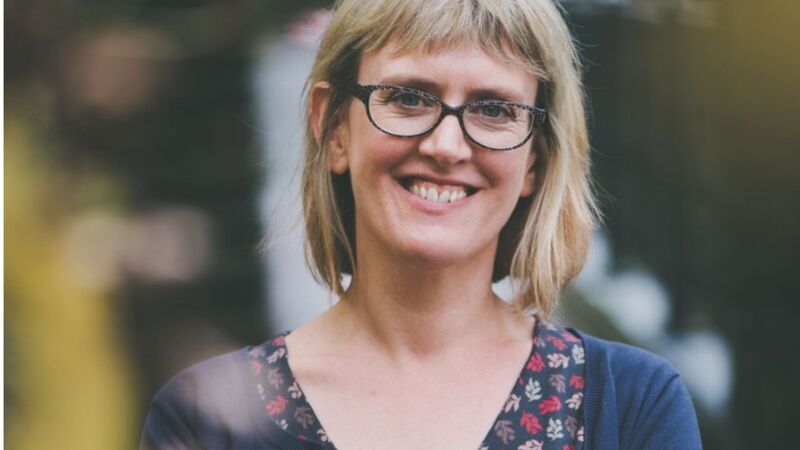You are viewing your 1 free article this month. Login to read more articles.
Daunt plans new buying structure after flat year at Waterstones
Waterstones is to split its centralised buying function into two roles, aimed at resolving the disconnect between what is ordered by the chain and what is then sold through. Waterstones' latest results showed the chain struggled for growth in the year to end April 2018, with the management team said to be distracted by the sale of the business.
Managing director James Daunt said he hoped the business would now "step up” as new store openings plus improved efficiencies enable the chain to grow while maintaining profitability. Sales fell slightly (-0.6%) in the year to end April to £385.7m at the UK business, and with sales also down, by 2.7%, to €13.1m in Ireland. Profits were flat at £24m and €2.2m, respectively. Daunt said: "It was a steady as she goes year. I spent more time on the sale than I spent selling books or putting in the new buying processes. I would hope that this year we will step up from that. But it is what we are, a pretty steady business, running itself fairly sensibly in quite trying times." The business was bought from the Russian investor Alexander Mamut by the US private equity group Elliott immediately after the financial year closed.
Daunt confirmed that he has held a series of meetings with publishers about the proposed changes to the buying function, ahead of a phased roll-out over the next few months. Under the new arrangements, an initial sub would be agreed earlier in the publication process by a Waterstones' buyer, but a new category manager would then manage the roll-out of the books within the estate. The category manager would be able to increase the level of stock made available to individual bookstores, but also make sure the merchandising matched the order levels. Daunt told The Bookseller: "I am telling publishers this is coming down the tracks. But this will be an evolutionary change, not a Big Bang."
According to Daunt the current situation means that publishers meet many different buyers at Waterstones, depending on the sectors they publish into, and that buying decisions are delayed until all of the buyers meet for a monthly review of these titles. "We will buy titles in a much more centralised, focused and holistic way, so a buyer will buy across the piste, with a view of the whole estate. So there won't be a case anymore of the history buyer not knowing what the biography buyer has bought. But we will no longer be ordering it six weeks ahead but 12/14 weeks ahead, so publishers will have greater certainty earlier."
Daunt did not say there would be fewer buyers in all, but did admit that the decision-making process would be streamlined. "It's easier to have fewer really good people. My objection [to the current situation] is that our best people are not doing the thing that adds the value, which is working out what we are doing when a book comes out. Often a buyer won't pay attention to a book once they've bought it, or they get bogged down in administration or looking at publishers’ catalogues. We have this phenomenon in Waterstones of missing the initial boom when a book is published. We have to have the ability to correct ourselves upwards [by talking with publishers]. We won't go down from the initial order. We need to react much more quickly, and respond if there's a buzz around a particular title."
Daunt said he remained committed to "local replenishment" whereby individual stores can re-order titles from the hub, or order titles in that have not gone through the centralised function, but was wary of shops being over-stocked, and returns being still too high, albeit much reduced. He said some stores had a tendency not to re-order "middle-ranking" titles in order to reduce overall stock-levels, which meant titles that did not sell remained on shelves, while others disappeared. "We will be setting minimum merchandising quantities. We are telling shops that they can go up, but not down. So if we say they must have one or five copies in stock, they must continue to have that level [and re-order when one is sold]."
Publishers spoken to by The Bookseller broadly welcomed the buying changes, which some felt would help the chain scale-up its orders for those titles they were heavily backing. Andrew Franklin, managing director at Profile, said: "It if works that’s fantastic, if it doesn’t then I am sure they will change it again. It really makes me cross when one person tries to tell another how to do their job so I trust the booksellers to sell their books. If Waterstones wants to improve things then we should support it." One smaller publisher expressed frustration with the current system, with the chain missing out on sales if the buyers don't make an initial sub: "Everything hangs off the key, quarterly appointments with the buyers. When I went into Hatchards recently, the buyer said she loved the book I showed her but couldn’t stock it without head office consent."
Daunt added: "As a result of this I'm expecting there will be more time for us to actually read the books. We are in the business of trying to run the place better, not worse. No one thinks we are trying to sell fewer books, but equally very few think we couldn't do it better."
In the year to end April 2018 two stores were closed, 11 opened, with sales off its website up 30%. “The website is looking better. It's a small part of our business, but doing better. To really improve it we’d have to spend a lot more money on it, and I'm a pragmatist, Amazon is where customers hold their accounts." Daunt said the chain would continue to open new shops: "I've never opened a duff shop, and we'll continue to grow. And with what's going on the high street we'll be able to get into places we've hitherto been locked out of. There are lots of place that don't have bookshops that ought to.” Daunt added that its non-book sales continued to grow as a proportion of the whole, as did business at its Cafe W. The company spent £8.8m on capital investment during the year.
On the new owner, Daunt said: “We've done what we said we'd do, and that's been reassuring for them.”















